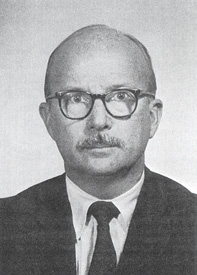Richard Welch (Richard Skeffington Welch)

Richard Welch, who was born in Hartford, Connecticut, was recruited to the CIA in 1951 upon graduation from Harvard, where he studied classics. His first assignment as a case officer was in Athens working as a civilian employee of the U.S. Department of the Army (1952–59). From 1960-64, he served in Cyprus, and then in Guatemala (1965–67), Guyana as COS (1967–69), and Peru as COS (1972–75). He arrived in Athens, Greece, in July 1975, at a time when Greece had just come out a tumultuous period of military dictatorship. Welch stayed in the house occupied by several of his predecessors as chief of the CIA station. The night of December 23, 1975, five men in a stolen Simca followed him home as he returned from a Christmas party. While two men covered his wife and driver, a third shot him dead with a .45 Colt M1911 pistol at close range. Welch’s name and address had been published in the Athens News and Eleftherotypia in November 1975. However, a communiqué sent by 17N to French newspaper Libération in March 1976 demonstrated that the group had been watching Welch’s movements since the summer of 1975. He had been revealed as a CIA agent in an East German book and a magazine called CounterSpy after the Athens News and Eleftherotypia disclosures. However, Parker R. refers to the former CIA agent Philip Agee, who had published two books revealing the names of more than 1,000 alleged CIA officers in Europe and Africa. For that reason the Supreme Court had revoked Agee’s passport in Haig v. Agee. “[…] Outraged by Agee’s actions, Congress passed the Intelligence Identities Protection Act (1982), which criminalized the disclosure of identities of CIA agents. The practice of naming CIA agents allegedly led directly to the 1975 assassination of CIA station chief Richard Welch in Greece.”
Richard Welch was the first CIA officer to be assassinated. By presidential order of U.S. President Gerald Ford, Welch was buried in Arlington National Cemetery. His death helped turn the political tide back in favor of the CIA after the damning revelations by the Church Committee earlier in 1975. Richard Welch’s murder contributed to passage of the Intelligence Identities Protection Act of 1982, making it illegal to reveal the name of an agent who has a covert relationship with an American intelligence organization. In July 2002, a hospital employee named Pavlos Serifis (born 1956) confessed that he had participated in Welch’s murder along with 17N’s alleged mastermind Alexandros D. Giotopoulos (born 1944), Pavlos’s uncle Ioannis Serifis (born 1938), and a tall, blonde “Anna.” Charges for the Welch murder were not brought because the (then) 20-year statute of limitations had expired. Giotopoulos was sentenced to multiple life terms in 2003 as the moral instigator of a string of assassinations, bombings, rocket attacks, and bank robberies from 1983–2000. Ioannis Serifis was acquitted. Pavlos Serifis was convicted of membership in a terrorist group but released on health grounds. An appeals court ruled in 2007 that the statute of limitations had expired for that crime.
Born
- December, 14, 1929
- USA
- Hartford, Connecticut
Died
- December, 23, 1975
- Athens, Greece
Cause of Death
- gunshot wound
Cemetery
- Arlington National Cemetery
- Arlington, Virginia
- USA

